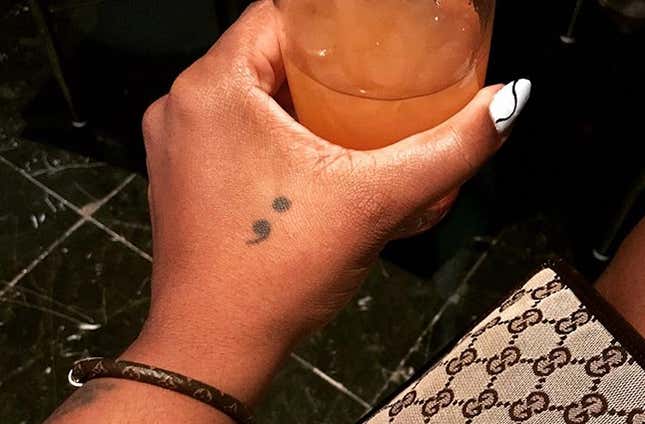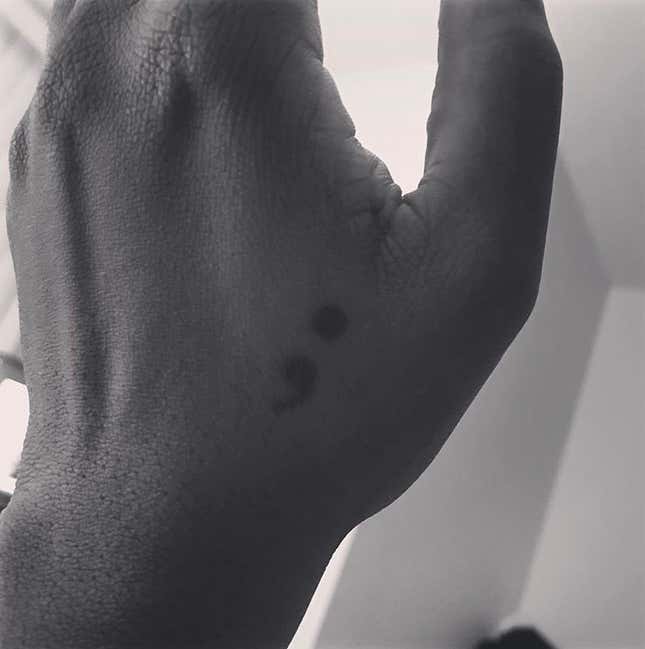
In 2013, 27-year-old Amy Bleuel began a mental health advocacy organization dubbed “Project Semicolon” to bring awareness to suicide, depression, addiction and self-injury. Bleuel, who had lost her father to suicide 10 years earlier, died by suicide at the age of 31. The campaign, however, remains strong, inspiring others to take an active role in suicide prevention.
According to the website, the fairly obscure punctuation mark is significant because “a semicolon is used when an author could’ve chosen to end their sentence, but chose not to. The author is you and the sentence is your life.”
For some, getting inked with a vertical period and a comma serves as a consistent reminder of where they’ve been and how far they’ve come; for others, it’s a symbol of support for those who have struggled with self-harm.
Mansa, a 46-year-old black woman currently living in a major city, says she got her semicolon tat—her ninth—three years ago.
“I remember hearing about the semicolon tattoo through social media, I think it was in 2015, ” she says. “Usually my process of getting a tattoo involves ruminating about it for about a year and then actually getting it on a whim—never actually making an appointment or picking a day.”
“One day in 2016, I went to a friend’s bday party which she held at a tattoo parlor,” she continues. “I hadn’t intended to get a tattoo but suddenly the feeling came over me. I had already done my research and knew where I wanted to put it.”

Mansa got her semicolon on her left hand just below the space between her thumb and pointer finger, which is quite visible as tattoos go.
I asked if people ask her about it.
“People don’t really ask me about it as much as they just say they like it with a knowing look or smile,” she says.
Mansa explains that people who know that it is related to suicide tend to say things like, “I like your tattoo” and point to it. Sometimes it leads to deeper conversations.
“One year while on vacation in Jamaica, I met a younger black man who worked in the gym. He saw my tattoo and said he liked it but then continued by saying, ‘I’m going to get one on each wrist’ and showed me his wrists which had scars from a suicide attempt. I told him that I was happy he was still here and encouraged him to get the tattoo.”
Mansa says that while she thought her tattoo would serve as a reminder to keep going, she said it also unexpectedly became a signifier.
“It allows other people who are aware of its meaning and may have the tattoo themselves to know that I’m ‘part of the club,’” she says. “And seeing another black person with a semicolon tattoo reminds me I’m not alone.”
Moreover, her story isn’t over.
If you are thinking about harming yourself, please call the National Suicide Prevention Lifeline at 1-800-273-8255 or the Suicide Crisis Line at 1-800-784-2433; help is available 24 hours a day.

